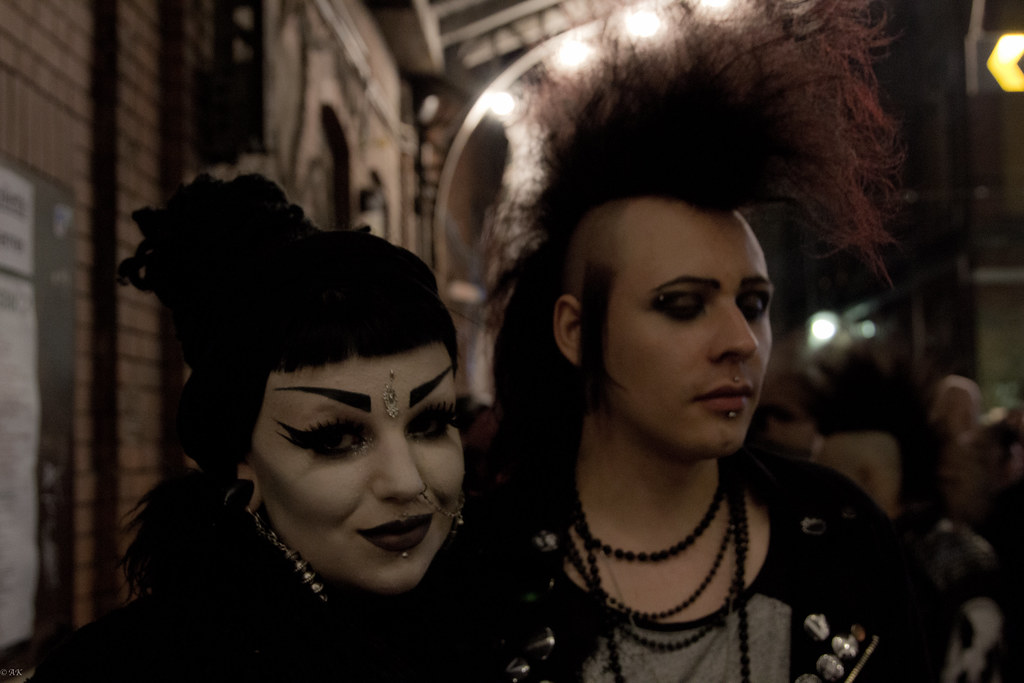World Goth Day: Exploring hidden, dark world of Indian goths

Goth stands for exploring & having interest in subjects that are considered taboo or are called ‘dark’ in nature (Image Credits: flickr)
“Indian goths are not easy to spot – they prefer to lie low and not flaunt themselves I think. Of course, unless you are an influencer and have to earn money, the better way to explore goth culture is to explore it in dark, hidden ways,” says Shiney, a Mumbai-based goth follower.
“Black nail polish, black clothing, long hair, tattoos and loads of silver jewellery – this is the dress code for goths across the world. India is no different, even if the goth sub-culture here is on a far smaller scale than it is in the West,” he adds.
Shiney is among the very few goths in India. Due to security risks, he does not use social media, share his photographs or even reveal his real name to most of the people he meets.
“The goth culture in India is still a taboo. It is not so much the United States and countries across Europe. I have been to goth pubs, goth villages, and stores exclusively for goths,” he adds.
He explains that the goth culture stands for exploring and having an interest in the subjects that are usually considered taboo or are called ‘dark’ in nature. From pink-haired gothic Lolitas in Japan to neon green cybergoths in Germany, the gothic culture has spawned distinct subgenres over the decades.
However, after the modern form of goth started out as a youth culture tribe in nightclubs of London during the mid-1900s where they played death metal, wore dark colours and unrecognisable make-up. “It was important as an act of rebellion and angst against the usual timing of the clubs, usual ways of celebration and against usual make-up and dresses,” Shiney adds.
He says that the most recognised song of the goth era is Bela Lugosi’s Dead by Bauhaus, a gothic music band. For Shiney, being goth means signing up for a worldview that embraces the shadows and peers into the darkness.
Away from the limelight
Unknown to most, there are quite a few several goths in Indian metropolitan cities too, but they do not necessarily advertise their beliefs. “There are many people who are goths and have regular jobs too. They may not dress up like typical goths the whole day but they do believe in the basic philosophy of being goth,” explains Oliver, a Delhi-based tattoo artist and a former goth.
“There are many things in the society and world that I feel strongly for. But I didn’t know how to express my anger. My becoming a goth was an expression of my anger,” she says. She adds that while dressing up like one has not worked well for her and she received a lot of flak from her college and family, she still holds on to the believes she had.
On the other hand, Vipul Sharma (name changed on request) turned goth eight years ago and says he still loves every minute of it. “I was always a bit of a rebel and didn’t want to go down the conventional route of academics, getting a nine-to-five job and ‘settling down’. Becoming a goth seemed a natural extension of that feeling,” explains the 25-year-old Mumbai resident, who sports his tattoos, long hair and body piercings with a stylish nonchalance.
The fact that goth culture is usually associated with a morbid mood, body piercing and bondage items, does not bother him particularly. “My friends and family are comfortable with me and that’s all that matters,” he says. And then asks, a little defiantly, “I’m a regular person, who expresses himself differently. What’s wrong with that?”
However, Sharma prefers to stay on the safe side and reasons that it would be prudent to withhold his name. “I’m not trying to shout around saying, ‘Look at me, I’m a goth! It’s very personal and I’d like to keep it that way,” he adds.
A new way of life
The goth ideology, a construct that is derived from the dark recesses of the gothic style of nineteenth-century English literature, is a culmination of its believers’ frustration with societal norms, rules and regulations, personal setbacks and a general disillusionment with mainstream culture.
Goth music often deals with thought-provoking topics, concentrating on societal evils, like racism, war and hatred of ethnic groups. And goths are also known for their love of German Expressionist silent films and the works of Dante, Byron and Tolstoy.
Goths are, in general, non-violent, pacifist, and tolerant. If there’s any violence they inflict, it’s mostly on themselves in the form of huge tattoos, body piercings, and sometimes, body modification. “Goths don’t mind bearing pain, so many of them even undergo the process of scarification – where thin tissue of the body is removed, leaving behind scars. It’s another form of tattooing,” says Aakash Malwani, a tattoo artist and tattoo shop owner in Delhi.
“With practices such as these, it’s not surprising that they keep a low profile – even in Mumbai, the most tolerant of Indian cities,” he adds.
However, he says that many Indian celebrities, especially those in Bollywood and a few big fashion labels have started embracing goth fashion. Goth make-up has also gained popularity in India for the past 7-8 years. He says that it may take most people in India a long time to understand the goth culture, but even if it is just for fashion, it is a much-needed start.









